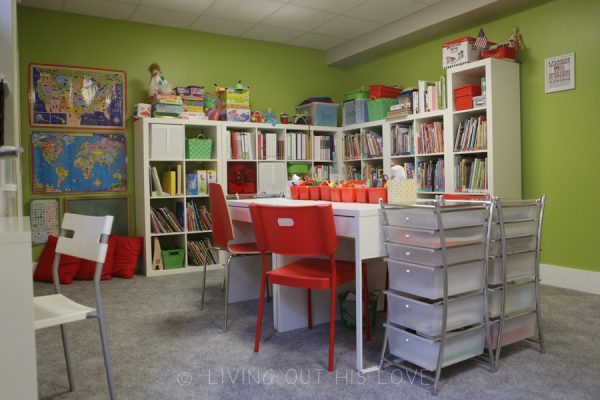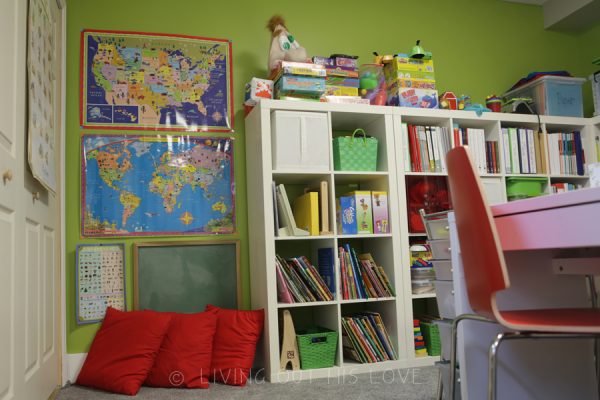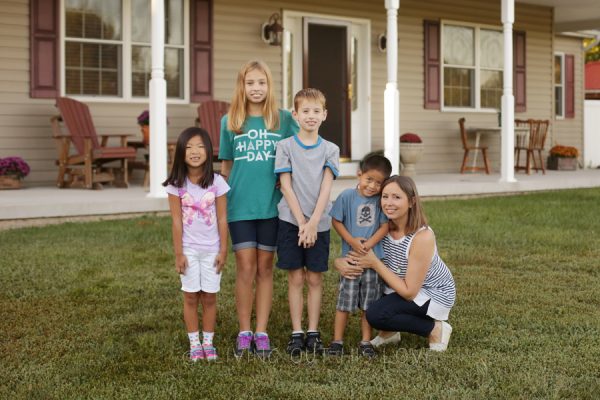Our decision to homeschool began like many other families’ journeys, I’m sure. We wanted to give our children a Biblical worldview, be a bigger part of their lives (no parents ever regret spending too much time with their children!), and have the freedom to choose our studies based on individual interests.
We also hoped to create a thirst for knowledge in an environment that was connected, flexible, personalized, relaxed, playful, and loving. Ultimately our goals for our children are to be independent, to be successful at whatever they choose to do, to love each other (and hopefully come home for holidays!), and mostly to love the Lord.
I know our desires can be accomplished in many different education environments here in the U.S., and I truly believe that there is not one correct way to teach children. I think there are so many wonderful alternatives for families, including public school. Homeschooling is not for everyone, just as public school or private school is not for everyone. I respect every family’s decision to educate their children in the manner they feel best. I’m simply thankful that families are free to choose education for their children. For now, we feel that homeschool is the best decision for our family.

We just started our fifth year together, and I feel more confident than ever that homeschooling is right for our family. I do not know if it will always be the best decision, but it is working well for now. And for several reasons, homeschooling has been especially beneficial for us as we have added two precious loves to our family through adoption:
Home environment to build attachment.
This was so important specifically for one of my children who showed indiscriminate affection to any nearby adult. By keeping their worlds small, we have been able to build attachment in a safe and nurturing environment: our home.
They are learning how to be a family and stick together, as they understand the roles of mom, dad, brother, sister, grandparent, friend, teacher, etc. Likewise, we are able to demonstrate and practice healthy boundaries, teach social cues, life skills, and coping techniques all throughout the day as needed.
Being together all the time allows us to predictably respond to needs in a connected way as the occasions arise, which will hopefully help them to heal from their losses over time. It also gives us relaxed time to connect through play and nurturing activities. We don’t get everything right every time, but we try our best!
Individualized teaching to meet educational, nurturing, and healing needs.
I am able to teach the academic skills my children are capable of learning based on their development, not simply their chronological age. And of course, I have the ability to encourage them to do more when they have mastered a concept and I feel they are ready to handle something new.
I know many traditional schools offer tremendous opportunities for children with special needs, but I’ve found through my limited personal experience with IEPs and service plans that the professionals in my local public school system simply don’t understand the impacts of trauma, neglect, and the severe loss associated with adoption. My explanations, while also trying to protect stories, get placating smiles and nods. I pray that’s not true for everyone else, but the school system here simply isn’t equipped to help all of my children in the best way possible.

Promoting memory retention using a classical education philosophy.
There are so many education philosophies, but we landed upon the classical method when we began homeschooling in 2012. That decision ended up being one of the best for my children because of the emphasis on memorization in the grammar stage. With almost all of our memory work put to song, it’s relatively easy to empower all of my children to succeed. The “lyrics” are fun and catchy, which help to combat one of the unfortunate outcomes of trauma and neglect – difficulties with memory retention.
Flexibility.
Flexibility with everything. Cocooning. Doctor’s appointments. Surgeries. Hospital stays. Helping our children learning how to communicate in a new language. Everything.
I don’t think I could jump immediately back into school work after bringing children home via adoption. There’s a certain amount of plain ‘ole surviving life that takes place upon arriving home. Likewise, the often countless doctor’s appointments, meetings with specialists, surgeries, hospital stays, and other unforeseen events can make it difficult to keep a normal school schedule.
I have been so thankful for the grace and flexibility when needed, even if it has meant schooling through the summer to catch up.

I know our educational choice won’t work for everyone and it isn’t the best decision for all families. But homeschool has been perfect for us. There, of course, have been challenges while homeschooling as well. But that would come with any education environment, and the positives far outweigh the negatives for us.
I think the most important education consideration adoptive parents need to keep in mind is what will work best for their child. Our choice to educate at home works best for our children right now, but that choice will look different for every child!


























Leave a Reply